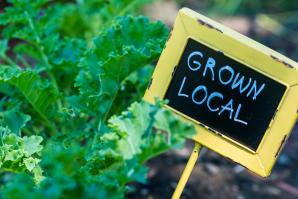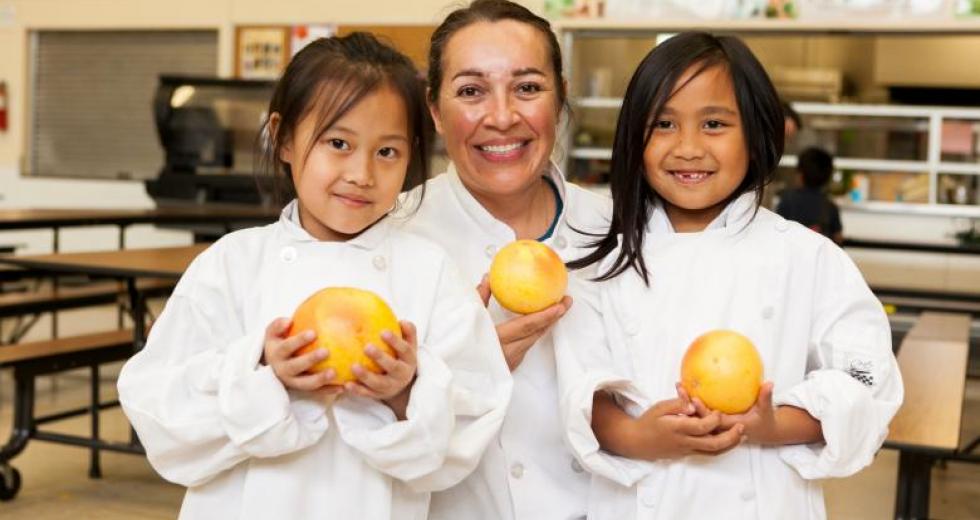Sacramento is full of people growing, preparing and eating food, but what about the people trying to change the rules — at the local and state level — to make those steps along the food chain better, fairer and greener?
To identify our region’s food policy champions, I reached out the Sacramento Food Policy Council, the now 1-year-old network dedicated to equity in the food and farming system, for recommendations (full disclosure: I’m on the board) and here are the four people I think are worthy of recognition.
Related: Chanowk Yisrael On Changing the ‘Hood for Good
Brenda Ruiz is busy. She’s a chef at Biba, an educator with Food Literacy Center and chair of the Sacramento Food Policy Council. She’s also a proud, first-generation immigrant from Guatemala.
“As an immigrant, I learned the value and importance of democracy, and nowhere more evident than in our food system,” Ruiz says. “Food democracy is our chance to address issues of hunger and human rights abuses, putting power back in the hands of everyone from small-scale farmers and poor neighborhoods. These can sound like radical ideas, but at their heart, it is the most American value: self-determination.”
The word “policy” has an ability to quickly turn some people off, Ruiz says. “As a chef, I try to tell people to compare it to a recipe. It’s the directions for making a great cake — or in this case, a better food system. Both require hands-on participation.”
Ruiz and the Sacramento Food Policy Council haven’t shied away from high-profile issues, including increased minimum wage, construction of a central kitchen for the Sacramento City Unified School District and the reduction of food waste.
Katie Valenzuela Garcia works on environmental justice issues in
Sacramento. (Photo courtesy Katie Valenzuela Garcia)

Katie Valenzuela Garcia is known among local food activists as a connector — a behind-the-scenes person that keeps it all together (now an independent consultant). In 2013, she helped found the Sacramento Urban Agriculture Coalition, which advocated for two urban-farming ordinances in the City of Sacramento. Garcia now serves on the California Air Resources Board’s Environmental Justice Advisory Committee, among many other roles, and is motivated by a deep commitment to supporting communities that are often left out.
Garcia grew up in the Central Valley town of Oildale. Her community didn’t have much healthy food available, and when she came to Sacramento she worked on an urban garden program that she says introduced her to more than a hundred local residents “who were willing to do a ton of hard work to improve their community’s access to healthy food.” “It was incredibly inspiring,” Garcia says.
Recently, Garcia has become involved in land use and planning issues, as environmental injustices have placed unfair burdens on the poorest communities of color in Sacramento. “We still need policy wins to align procurement, production, distribution, and access to healthy and locally produced food,” she says. “And we need to figure out some more big questions, like how to support locally-owned grocery stores in food deserts, and how to divert food waste to composting programs to maintain healthy soils.”
Shaunda Johnson is involved with the Healthy Eating and Active
Living Zone, an initiative of the Health Education Council in the
Valley Hi neighborhood. (Photo courtesy Shaunda Johnson)

Shaunda Johnson is a native South Sacramentan and an organizer with the Healthy Eating and Active Living Zone, an initiative of the Health Education Council in the Valley Hi neighborhood. Growing up, Johnson’s house at the end of the cul-de-sac was a hub of community activity. She and her father created a youth track and field club, driving children to and from practice when their own parents couldn’t get them there, given work schedules or lack of transportation. And through this work, and later as she transferred from Florin High School to St. Francis, one of only a handful of African-American and less-affluent students, she learned about the inequities and challenges communities face. Her first passion was violence prevention, and then she made the links to food justice, seeing it as a positive path for health, self-determination, community-building and civic engagement.
Johnson earned her organizing and policy chops at Sacramento Area Congregations Together, and continues to partner with the organization as she supports residents who stand up to two fast-food drive-thru developments in their community. They’ve conducted extensive surveys of residents and recently opposed a drive-thru development near the new light rail extension station at Cosumnes River College. And given their recent presentation on air quality impacts, the city’s Planning and Design Commission may set a new standard for the number of drive-thrus allowed in any one community in Sacramento.
Related: The Waiting Game
“Despite all the political pressure to build a drive-thru, we know that the same kinds of fast-food restaurants don’t get built that way in more affluent parts of town,” Johnson says. “We’re taking a stand for the way we’d like to see our restaurants and community built.”
Rebecca DeLaRosa (right, running a half-marathon) is interim
executive director of the Latino Coalition of a Healthy
California. (Photo courtesy Rebecca DeLaRosa)

Rebecca DeLaRosa grew up in Watsonville, where her dad worked as a farmworker in the fields and her mom in the canneries. As a child, she knew to be concerned about synthetic pesticides. “My dad would make it a point to take off his shoes and clothes before coming into the house on the days they would spray the fields,” she recalls. “Also, our teachers would warn us about not playing at the playground closest to the fields. Whenever we would see men wearing white suits we knew we better stay in the cafeteria or not hang out in the playground.”
DeLaRosa describes these early experiences with the farming system as motivators for her current work as the interim executive director and policy advocate with Latino Coalition for a Healthy California. More recently, she has turned her attention to “preventable, diet or food-related chronic disease,” citing the $37 billion in diabetes costs in California each year, and the fact that one out of every two Latino and African-American children is on their way to get diabetes if the current trend continues.
DeLaRosa supports local initiatives and state legislation to assess fees on sugary beverages like sodas to help pay for their societal health costs, particularly for children. “Making sure that the most vulnerable populations in the state have access to healthy food is one of the biggest challenges, especially with the very targeted marketing of junk food to low-income communities of color,” she says.
DeLaRosa and her coalition also played a lead role in the passage of the California Nutrition Incentives Act (AB 1321), which discounts fruits and vegetables at farmers markets and farm stands for people using CalFresh benefits; the policy is meant to “match” or double the purchasing power of food stamps, while increasing direct investments in local farmers.
—
So many of our region’s truly inspiring people are humble, and don’t like to be recognized as champions. But I’m glad to call them out. What local food policy champions do you want to acknowledge? Let Comstock’s know in the comments section.
Recommended For You

Millennials in the Food Movement
Ideas that are turning the food industry on its head
When it comes to food, millennials are twice as likely as any other generation to give a whisk about organic and locally-sourced meals. Some even credit millennials’ disdain for junk food with the downward fiscal spiral of the country’s top 25 food and beverage industries. Though it may seem simple, these ideas are turning the food industry on its head.

Sacramento Urban Farmer to Start Food Academy after Visit to Milan
South Sacramento urban farmer, Chanowk Yisrael, wants to see local food systems improve. Eight years ago, he started growing organic food for his family and eventually launched the Yisrael Family Urban Farm in Sacramento’s historic Oak Park neighborhood. Now, he’s expanding that vision to motivate Sacramento youth to become more engaged in changing our local food system — announcing today that he’ll be partnering with Slow Food Sacramento to charter the city’s first Food Academy.




Comments
Amber Stott at Food Literacy Center! Could not be more impressed with what she is doing. Great cause with great people.
I'd like to acknowledge Brenda Ruiz (my niece) for her never ending work to improve our community and her commitment to teach young chefs the importance of healthy eating.
This is a really good start. Please add Mary Kimball and Amber Scott to this list of local policy champions. Thanks for calling out these positive change-makers Paul Towers and Comstocks.